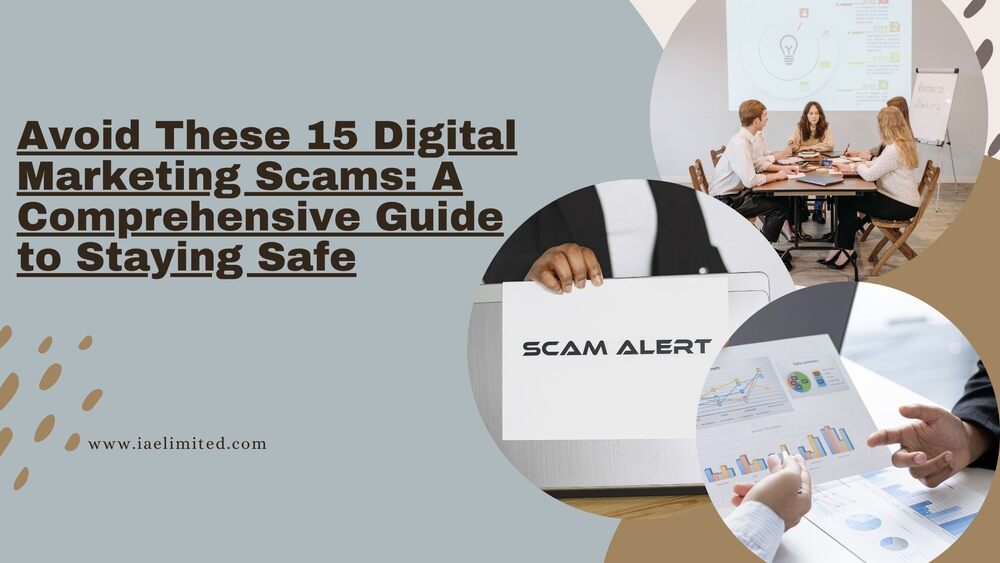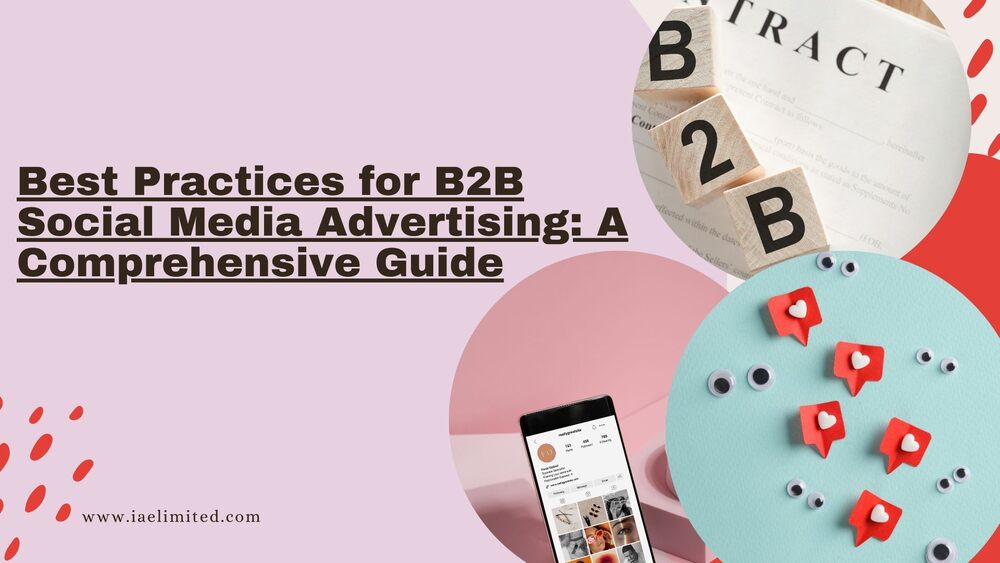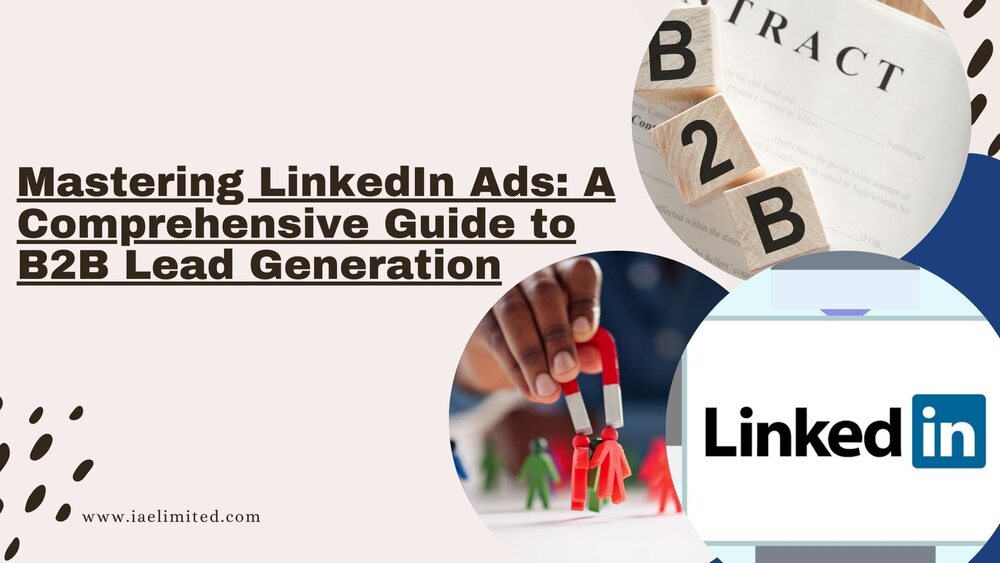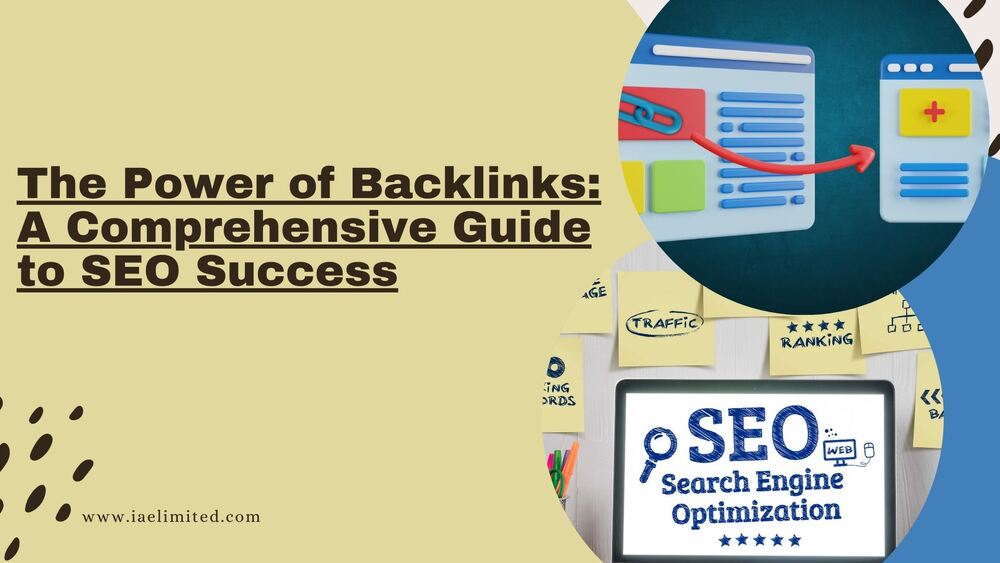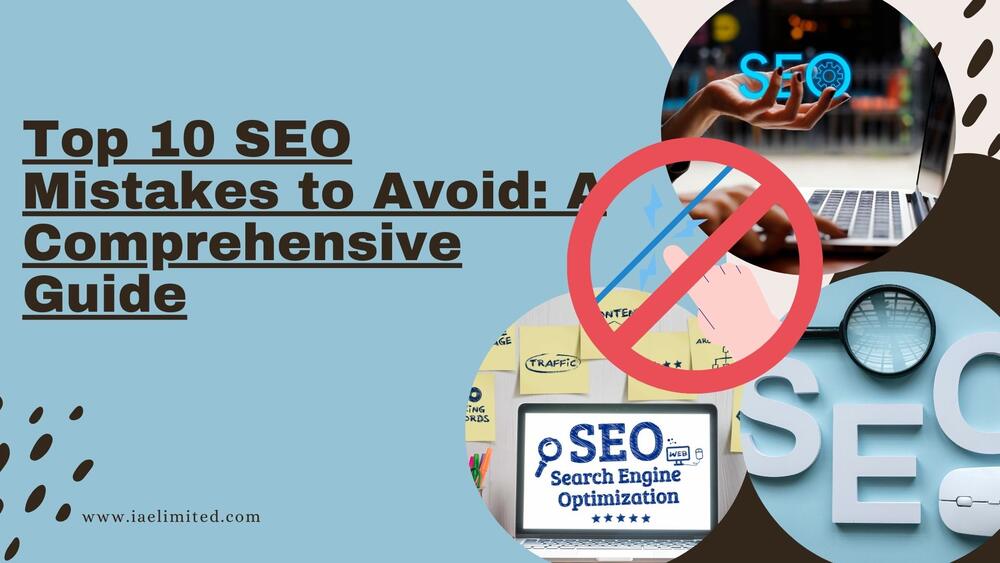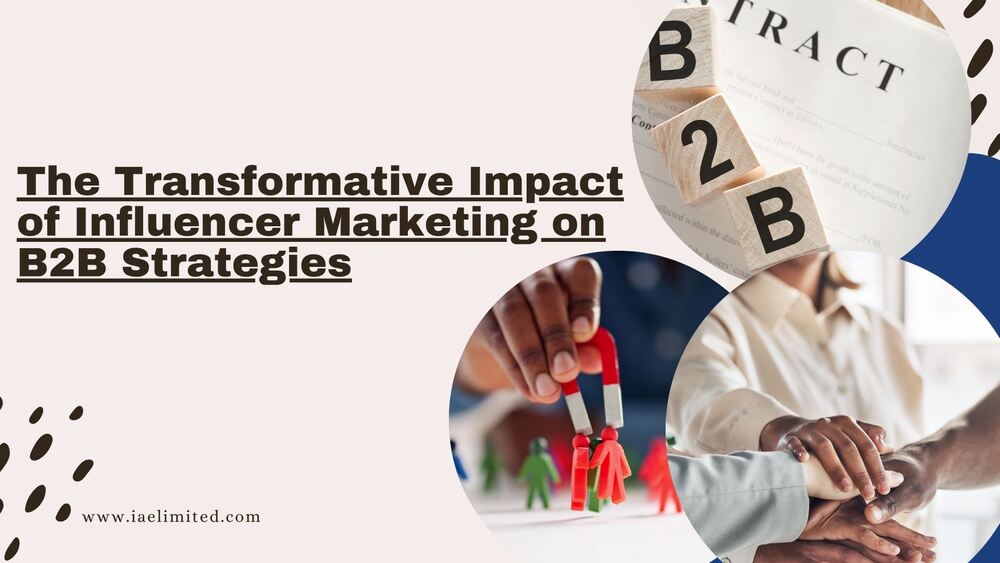
Introduction
Table of Contents
In recent years, influencer marketing has transformed how businesses engage with their audiences. While traditionally associated with B2C brands, this powerful marketing approach is making significant strides in the B2B sector as well.
In this article, we will explore the role of influencer marketing in B2B strategies, delving into its benefits, methods for implementation, and how it aligns with broader marketing goals.
Understanding Influencer Marketing
Definition of Influencer Marketing
Influencer marketing involves collaborating with individuals who have significant influence over a target audience. These influencers leverage their credibility and reach to promote products or services, ultimately driving brand awareness and sales.
In the B2B context, influencers often include industry experts, thought leaders, and professionals who can sway the opinions of other businesses.
Historical Context and Evolution
Influencer marketing isn’t new; it has roots in celebrity endorsements and public relations. However, the rise of social media has dramatically altered the landscape. Platforms like LinkedIn, Twitter, and Instagram have democratized influence, allowing individuals to build personal brands and engage with niche audiences.
Key Characteristics of Influencer Marketing
- Authenticity: Successful influencer marketing relies on genuine partnerships where the influencer’s values align with the brand’s.
- Targeted Reach: Influencers often have access to specific industry audiences, making them ideal for B2B marketing.
- Engagement: Influencers can create meaningful interactions that go beyond simple advertisements, fostering trust and loyalty.
The Unique Landscape of B2B Marketing
Differences Between B2B and B2C Marketing
B2B marketing differs significantly from B2C in its approach and objectives. B2B transactions typically involve longer sales cycles, larger budgets, and multiple stakeholders. Consequently, B2B marketing strategies focus on relationship building, education, and establishing trust.
Current Trends in B2B Marketing
Recent trends in B2B marketing include:
- Content Marketing: Businesses are investing heavily in high-quality content that educates and informs.
- Account-Based Marketing (ABM): Tailored marketing efforts directed at specific high-value accounts are becoming more common.
- Personalization: Customized messaging based on the recipient’s preferences and behaviors is gaining traction.
Challenges Faced by B2B Marketers
B2B marketers face several challenges, including:
- Complex Decision-Making Processes: Many B2B purchases involve multiple stakeholders, making it essential to address various concerns.
- Limited Resources: Smaller companies may struggle to compete with larger organizations that have more substantial marketing budgets.
- Keeping Up with Technology: Rapid technological advancements require marketers to stay updated with the latest tools and strategies.
Check out this article by, 1973ltd.com to find more challenge faced by B2B marketers.
The Intersection of Influencer Marketing and B2B
Why Influencer Marketing Matters in B2B
Influencer marketing is essential in B2B for several reasons:
- Building Trust: Influencers lend credibility to brands, helping establish trust among potential customers.
- Expanding Reach: Influencers can introduce brands to new audiences, significantly increasing visibility.
- Driving Engagement: Influencers often create content that resonates with their followers, leading to higher engagement rates.
The Role of Trust and Credibility
In B2B marketing, trust is paramount. Businesses are more likely to engage with brands endorsed by trusted figures within their industry. By leveraging influencers who are respected and credible, companies can enhance their own reputation.
Case Studies of Successful B2B Influencer Campaigns
- IBM and Social Influencers: IBM has successfully partnered with technology influencers to promote their cloud services, resulting in increased engagement and brand visibility.
- HubSpot’s Partner Program: HubSpot collaborates with marketing experts who share valuable insights through webinars and content, solidifying their authority in the industry.
Types of Influencers in the B2B Space
Industry Experts and Thought Leaders
These influencers are recognized authorities in their fields. Collaborating with them can enhance your brand’s credibility and establish your company as a leader in your industry.
Micro-Influencers vs. Macro-Influencers
While macro-influencers may have a larger following, micro-influencers often boast higher engagement rates. Micro-influencers typically have a niche audience, making them more effective for targeted B2B campaigns.
Employee Advocacy and Internal Influencers
Encouraging employees to share their experiences and insights can be a powerful form of influencer marketing. Employees who engage on social media can amplify the brand’s message and humanize the company.
Developing an Influencer Marketing Strategy for B2B
Identifying Your Goals and Objectives
Before launching an influencer marketing campaign, define clear objectives. Are you looking to increase brand awareness, generate leads, or enhance customer relationships? Having measurable goals will help you assess the campaign’s effectiveness.
Selecting the Right Influencers
Finding the right influencers requires research. Look for individuals who align with your brand values and have a genuine connection with their audience. Consider factors like audience demographics, engagement rates, and content style.
Crafting the Message and Content
Collaboration is key in influencer marketing. Work closely with influencers to create authentic content that resonates with both their audience and yours. Consider using various formats, such as blog posts, videos, or podcasts, to reach a broader audience.
Tools and Platforms for Influencer Marketing
Overview of Influencer Marketing Platforms
Several platforms facilitate influencer marketing, including:
- BuzzSumo: Helps identify influencers in specific industries.
- Traackr: Offers tools for managing influencer relationships and measuring performance.
- AspireIQ: A platform that connects brands with influencers for collaboration.
Social Media as a Tool for Engagement
Social media platforms like LinkedIn and Twitter are ideal for B2B influencer marketing. They allow for direct interaction with potential clients and foster community engagement. Check the article to find the best
Analytics and Measurement Tools
Measuring the effectiveness of your campaigns is crucial. Utilize analytics tools to track engagement, reach, and conversion rates. Google Analytics, for instance, can help assess traffic generated from influencer campaigns.
Integrating Influencer Marketing with Overall B2B Strategy
Alignment with Content Marketing
Influencer marketing should complement your overall content marketing strategy. Collaborating with influencers can provide valuable content that educates your audience while promoting your brand.
Influencer Marketing in Lead Generation
Influencers can drive qualified leads through targeted content that addresses specific pain points. By sharing case studies or testimonials, they can effectively nurture prospects through the sales funnel.
Enhancing Customer Relationships through Influencer Partnerships
Long-term influencer partnerships can foster deeper customer relationships. By continually providing valuable insights and content, influencers can help maintain engagement and loyalty.
Measuring the Success of Influencer Marketing in B2B
Key Performance Indicators (KPIs)
To evaluate the success of your influencer marketing efforts, consider the following KPIs:
- Reach: Measure the number of people who saw your content.
- Engagement: Track likes, shares, comments, and overall interaction.
- Conversions: Analyze how many leads or sales resulted from the campaign.
Quantitative vs. Qualitative Metrics
Quantitative metrics provide numerical data, such as website traffic and sales figures. In contrast, qualitative metrics focus on the overall sentiment and feedback from your audience. Both types of metrics are essential for a comprehensive evaluation.
Tools for Tracking ROI
Tools like HubSpot and Salesforce can help track the return on investment (ROI) of your influencer marketing campaigns. These platforms allow you to analyze how influencer partnerships contribute to your bottom line.
Common Pitfalls and How to Avoid Them
Misalignment of Influencer and Brand Values
Selecting an influencer who does not align with your brand can damage credibility. Always ensure that the influencer’s values and messaging resonate with your company.
Overlooking Compliance and Disclosure
Transparency is crucial in influencer marketing. Ensure that influencers disclose their partnerships to maintain trust with their audience.
Neglecting Audience Engagement
It’s not enough to create great content; engaging with the audience is equally important. Respond to comments and encourage discussions to foster a sense of community.
Future Trends in Influencer Marketing for B2B
The Rise of AI and Technology in Influencer Marketing
Artificial intelligence is set to revolutionize influencer marketing. AI can help identify trends, predict consumer behavior, and optimize campaigns for better results.
Increasing Importance of Authenticity
As consumers become more discerning, the demand for authentic content will grow. Influencers who can communicate genuine experiences will thrive.
Predictions for the Next Decade
The next decade will likely see an increase in niche influencers and greater emphasis on long-term partnerships. Brands will need to adapt to changing audience preferences and technological advancements to remain competitive.
Conclusion
Influencer marketing is a transformative strategy for B2B companies looking to enhance their marketing efforts. By leveraging the credibility and reach of industry influencers, businesses can build trust, engage audiences, and drive results.
As the landscape evolves, embracing this approach will be essential for staying ahead in a competitive marketplace.
FAQs

What are the benefits of influencer marketing for B2B companies?
Influencer marketing helps B2B companies build trust, expand reach, and enhance engagement. By collaborating with credible figures in their industry, businesses can effectively connect with their target audience.
How do I find the right influencers for my B2B strategy?
Research is key. Look for influencers whose values align with your brand and who have a genuine connection with their audience. Consider engagement rates and the relevance of their content.
What are some common mistakes in B2B influencer marketing?
Common mistakes include misalignment of brand values with influencers, overlooking compliance and disclosure, and neglecting audience engagement.
How can I measure the effectiveness of my influencer marketing campaigns?
Utilize KPIs such as reach, engagement, and conversions to evaluate the success of your campaigns. Tools like HubSpot and Google Analytics can provide valuable insights.
Will influencer marketing continue to grow in the B2B sector?
Yes, influencer marketing is expected to grow as businesses increasingly recognize its effectiveness in building trust and reaching targeted audiences.
By understanding and implementing influencer marketing strategies, B2B companies can foster deeper connections with their audiences and drive significant business growth.
